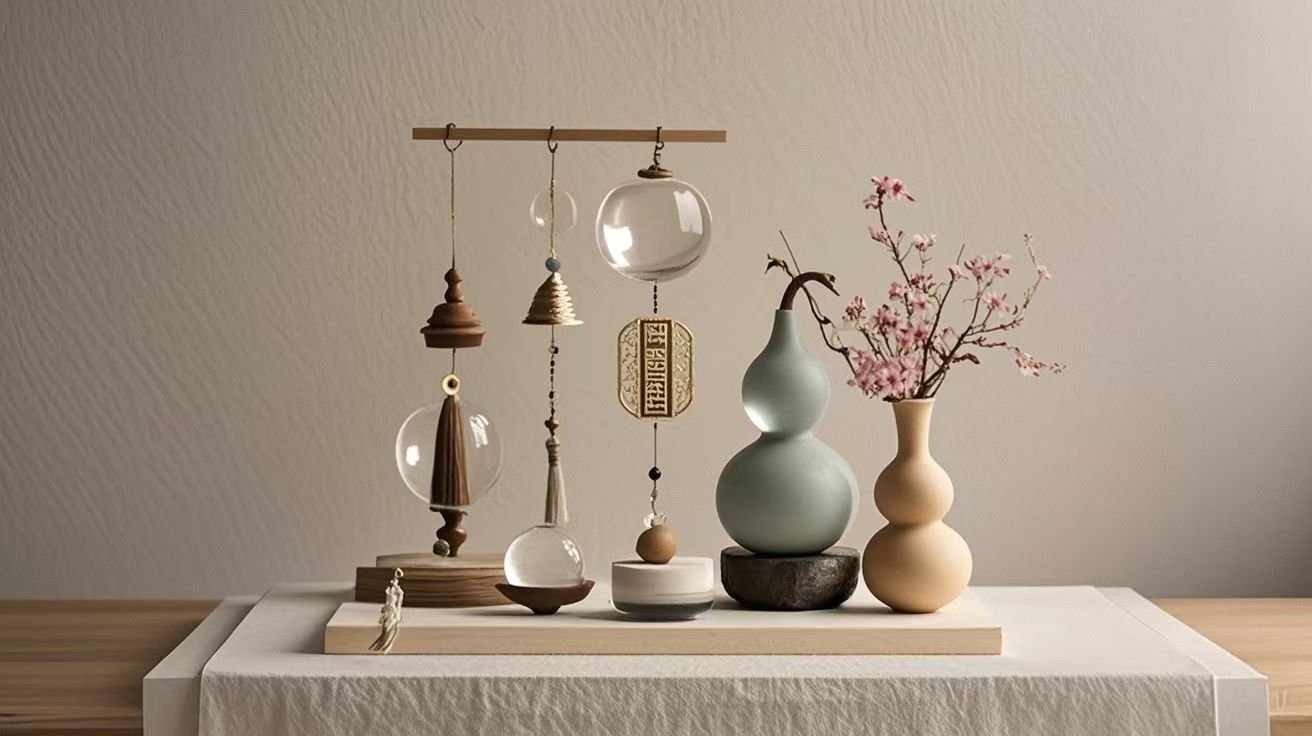Address
304 North Cardinal
St. Dorchester Center, MA 02124
Work Hours
Monday to Friday: 7AM - 7PM
Weekend: 10AM - 5PM
Address
304 North Cardinal
St. Dorchester Center, MA 02124
Work Hours
Monday to Friday: 7AM - 7PM
Weekend: 10AM - 5PM

Feng Shui decoration plays an important role in traditional Chinese culture. It not only concerns the comfort and aesthetics of the living environment, but is also considered closely related to the fortune, health, and family harmony of the residents. The following is a detailed explanation of some basic principles and specific practices of feng shui decoration:
Feng Shui layout of the entrance hall and foyer
As the “throat” of a home, the feng shui layout of the foyer and entrance hall is particularly important. Doors should avoid facing stairs, corridors, or directly facing another door, as this layout can lead to direct airflow and affect family wealth and health. If it cannot be avoided, screens, foyer cabinets, or green plants can be placed at the entrance to buffer the airflow and create a trend of “storing wind and gathering air”. The entrance should be kept clean and bright, and decorative paintings with auspicious meanings can be hung or small water features can be placed to add vitality and wealth.
Feng Shui layout of the living room
The living room is the main place for family reunions and receiving guests, and its feng shui layout directly affects the overall fortune of the family. The living room should be located in the front half of the residence, near the entrance, in order to absorb auspicious energy. Sofa should be backed against a solid wall, avoiding empty space behind or facing doors and windows, to enhance the sense of security and stability of family members. The TV background wall should be avoided from being set on the financial position (generally considered as the diagonal position of the entrance) to avoid creating a situation of “scattered wealth”. Decorations such as green plants and fish tanks in the living room should be placed in appropriate positions to help promote family health.
Feng Shui layout of bedroom
The bedroom is a private space for rest and health preservation, and its feng shui layout directly affects the health and sleep quality of the occupants. The placement of beds is particularly important, and should avoid facing doors, windows, mirrors, or beams directly to prevent interference from adverse air fields. It is best to lean against the wall at the head of the bed, which gives a sense of stability and is conducive to gathering positive energy. The color of the bedroom should be mainly soft, avoiding overly bright or cold tones, in order to create a warm and comfortable sleeping environment.
Feng Shui Layout of Kitchen and Restaurant
The kitchen is a place for cooking delicious food and nourishing life at home, and its feng shui layout is related to the health and financial fortune of family members. The kitchen should be located in the back half of the residence, avoiding being in the center position to prevent the “burning heart” from affecting the overall fortune. The stove should not face the doors and windows directly to avoid direct airflow affecting the stability of the fire and the quality of food. As a dining area, restaurants should be closely connected to the kitchen, but should not be directly adjacent to it to prevent oil fumes from entering. The shape of the dining table is preferably round or square, symbolizing reunion and stability.
Feng Shui Layout of Study and Office
The study and office are important places for learning and working, and their feng shui layout has an undeniable impact on efficiency and inspiration. The study should choose a room with good lighting and smooth ventilation to keep the mind clear. The desk should face the window to absorb natural light and fresh air.
If you want to learn more about fengshui or purchase talismans, please visit our website https://bestwish4you.com/